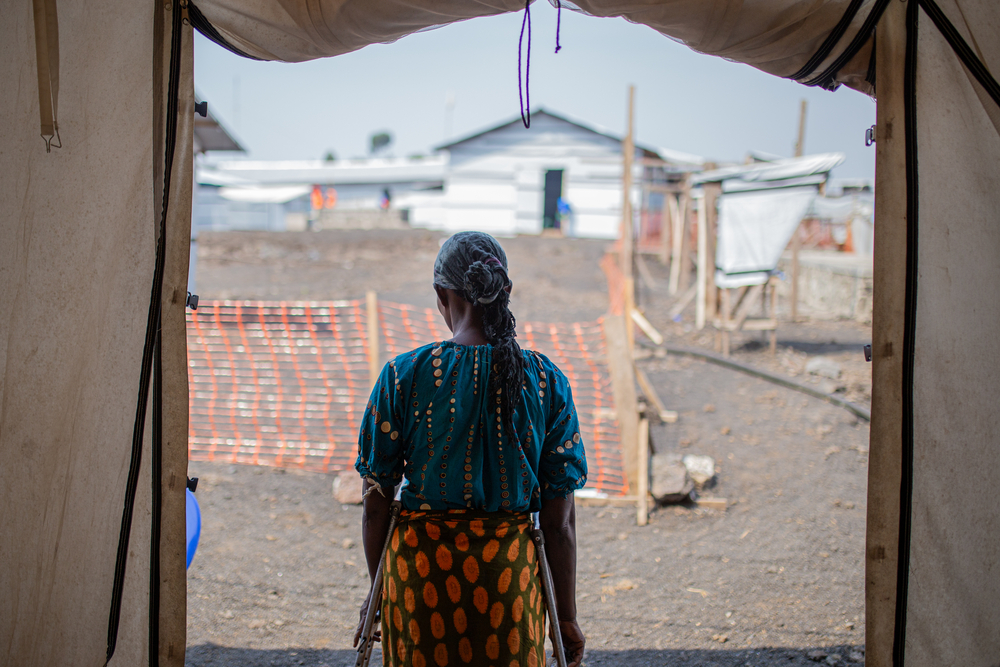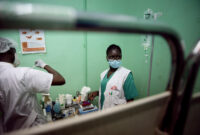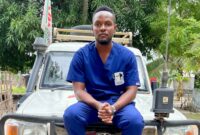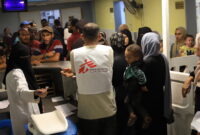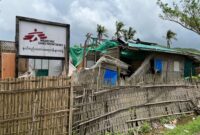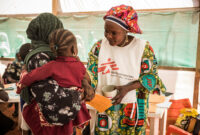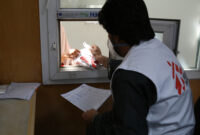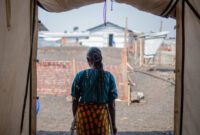DRC: The daily struggles of women in Goma’s displacement camps
For hundreds of thousands of displaced people living in camps around Goma, survival is a daily struggle, especially for women. Every day, around 701 women who are survivors of sexual assault present themselves at the structures set up by MSF in the Lushagala, Bulengo, Elohim, Shabindu, Rusayo and Kanyaruchinya sites – an unacceptable situation. The precarious living conditions in the camps – in which access to food and other basic necessities is extremely limited – put women at greater risk of becoming exposed to sexual violence. To address the situation, it is urgent that humanitarian actors, donors, and Congolese authorities step up their efforts to sustainably improve the living conditions of women, and so reduce the risk of aggression.
“The only way we can find food is to go to the fields, but women like me who have been attacked don’t want to go back and are totally dependent on humanitarian aid,” says a 20 year old woman who lives in fear after being sexually assaulted by a gunman while growing beans near the camp in Lushagala.
Women’s situation in the camps is dire.
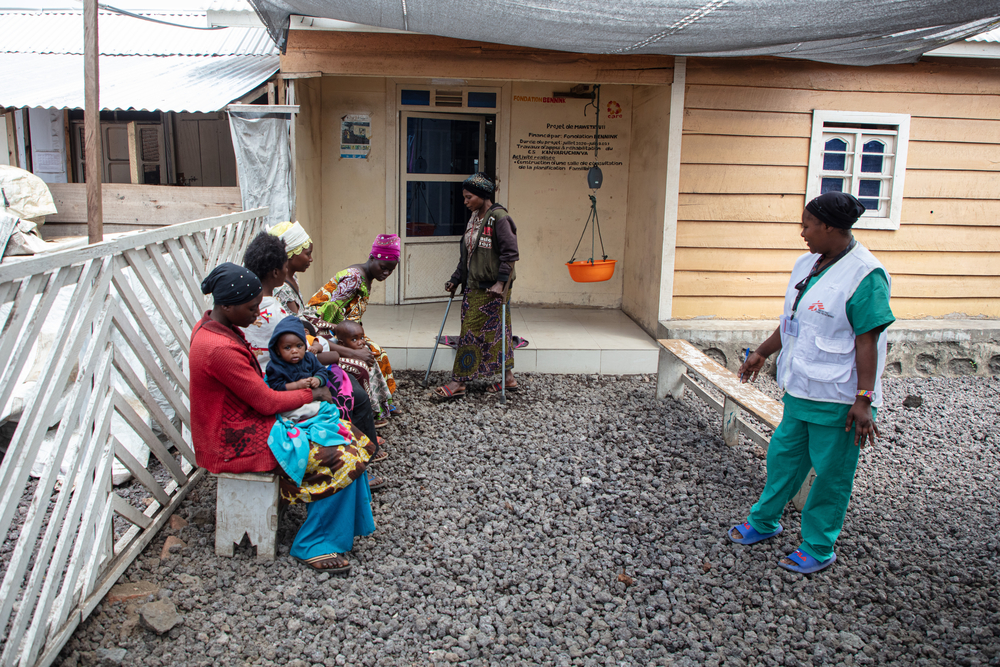
Often the lone providers for their families, many women have no choice but to leave the camp in search of wood and food, exposing themselves to the risk of violence, particularly sexual violence.
“During the month of July alone, 1,500 female survivors of sexual violence sought care from MSF teams at Rusayo, Shabindu, and Elohim camps— more than twice as many than in May,” says Rasmane Kabore, MSF country director. “About 80 per cent of these survivors were treated within 72 hours of being assaulted, which illustrates the scale of the emergency. The sooner they come forward, the sooner we can offer them emergency care to prevent unwanted pregnancies, sexually transmitted diseases – especially HIV – and other complications. In addition, we are observing that assaults are becoming increasingly violent, with associated physical injuries, and a growing number of women are being raped more than once” adds Rasmane.
Most survivors are assaulted outside the camps while searching for firewood or food. However, in recent weeks, MSF teams have observed an increase in cases of sexual assault in the camps where MSF operates, by about 15 percent. Families are sleeping in tents that do not close, and the lack of access to basic services is forcing some women to resort to transactional sex, making them more vulnerable to exploitation and abuse.
“After I was attacked, the acquaintances of my husband advised him to abandon me, and now I live alone with my four children,” explains a 23 year old pregnant woman living in Rusayo camp. In this context, the work of community mobilisers is essential to fight against stigmatisation. “I listened to a community mobiliser talking on a megaphone outside my house. He said to go to Tumaini [Swahili for hope] clinic, where a flower was drawn if you had been subjected to violence,” adds a 20 year old woman living in Lushagala.
Providing a range of care services for women
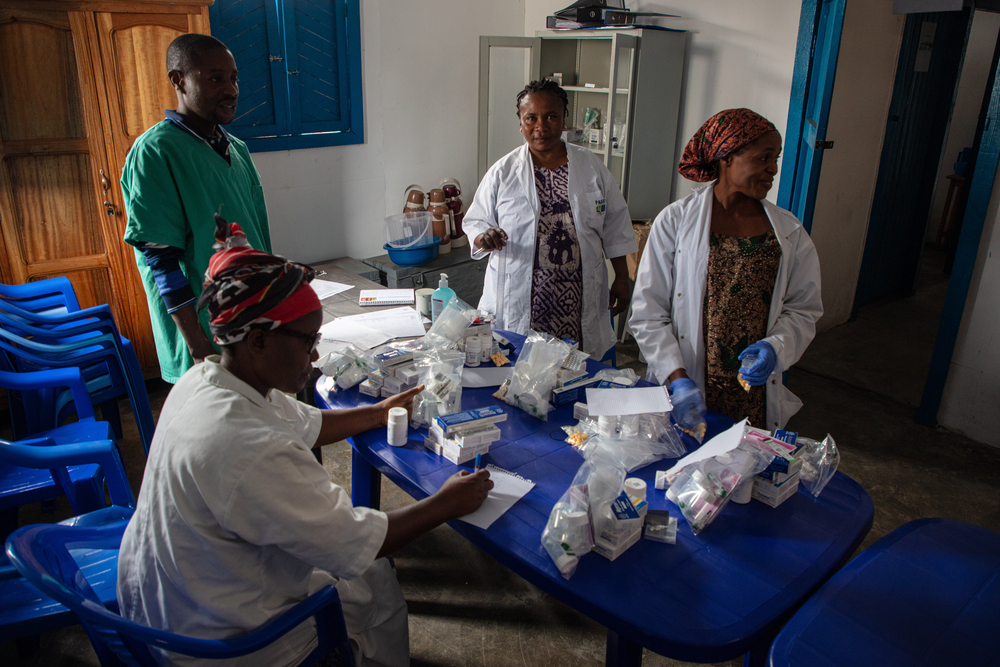
“Women in the camps face a multitude of health problems, and while focusing on emergency treatment for sexual violence is a priority, we must not neglect other health services for women,” says Rebecca Kihiu, MSF gender-based violence expert. In addition to providing medical and psychological care for survivors of sexual violence, MSF teams offer women various methods of contraception, treatment for sexually transmitted diseases, and safe termination of pregnancy. In the Kanyaruchinya health centre, MSF supports the obstetric and neonatal care department, where around ten women receive a medical childbirth every day.
“To prevent the worst, I went to MSF to look for contraception so that I wouldn’t get pregnant if I was attacked. I could not feed any more children,” says a woman treated at the MSF clinic in Rusayo. “In addition to the medical consequences, the women we see suffer from emotional problems, anxiety, depression, and insomnia,” says Jerlace Mulekya, mental health supervisor at the MSF clinic in Lushagala. “We also accompany them to prevent their psychological state from worsening at a time when they need to remain particularly strong to face up to their daily difficulties.”
Despite an improvement in access to water, latrines, and other basic services in some camps in recent months, women continue to live in poor hygiene conditions. “I often have infections, and it’s very difficult to get soap,” says a young woman who was three months pregnant in the Rusayo camp. In the maternity unit supported by MSF in Kanyaruchinya, a woman who had just given birth said that she had had nothing to eat since the day before. “It’s food that gives you strength. If I don’t eat, the baby won’t have anything to eat either, so I won’t produce enough milk to give him.”
“We are a medical humanitarian organisation, and other stakeholders, as well as the Congolese authorities, must do more to prevent violence against women, ensure their protection in the camps, and put an end to impunity for the perpetrators of these crimes,” says Kabore. “To this end, donors must continue to increase their funding and humanitarian aid agencies must continue their efforts to improve conditions for women. This includes improving access to food, distributing fuels and cooking equipment, and setting up social and legal protection services so that women feel safe. To reintegrate survivors into society, we must implement a holistic approach based on their needs and preferences, as well as substantial economic support.”
[1] Average calculated between July 31 and Sept. 5 for all MSF sites: Lushagala, Bulengo, Elohim, Shabindu, Rusayo and Kanyaruchinya
